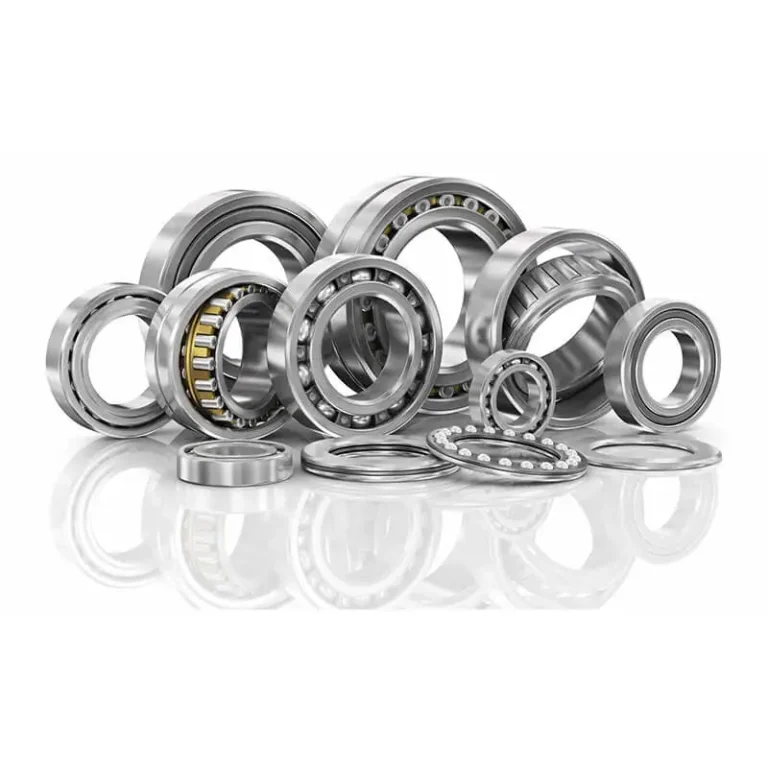Understanding bearings and their proper application is crucial for maintaining the smooth operation of machinery. Bearings are vital in various industries, supporting rotating or moving components. This blog provides information about bearings’ purpose, functions, and types. Additionally, it will highlight the four signs indicating your bearings application may need an upgrade to achieve better efficiency.
An Introduction to Bearings
Bearings are mechanical components that reduce friction between moving parts while supporting a load. They allow for smoother and more controlled movements, which is critical for applications that involve rotating shafts or high-speed operations. Bearings are widely used in different industries, from automotive to manufacturing, ensuring the reliability and performance of machinery.
Understanding the Role of Bearings
Bearings enable and facilitate rotational or linear movement while minimizing friction. They help distribute loads evenly across a system, support precision in machine operations, and reduce noise and vibration. By offering space and weight savings, bearings contribute to efficient equipment design and operational efficiency.
Common Bearing Types and Their Uses
Selecting the right bearing type is essential for optimizing machinery performance. Here are some common types of bearings and their applications:
Ball Bearings: Suitable for light to moderate loads, ball bearings are versatile and used in applications involving deep groove ball bearings or single-row angular contact bearings.
Roller Bearings: Designed for heavy load applications, these bearings can handle greater static and dynamic loads.
Thrust Bearings: Ideal for handling axial or thrust loads parallel to the axis of rotation, these bearings are commonly used in automotive applications.
Needle Bearings: Known for their slim profile, needle bearings are excellent for applications with limited space but high load requirements.
Spherical Bearings: These can accommodate misalignment between the bearing axis and housing.
Spherical Roller Bearings: Used for heavy-duty applications, spherical roller bearings can support high radial and axial loads.
Key Advantages of Using Bearings
Bearings offer several key benefits that enhance equipment performance:
Friction Reduction: Bearings decrease the friction between moving components, promoting smoother operation.
Load Distribution: Bearings help evenly distribute radial or axial loads, reducing stress on other parts.
Precision and Accuracy: They ensure that components like rotating shafts function with high precision, minimizing wear.
Noise and Vibration Reduction: Bearings help reduce mechanical noise and vibration levels, contributing to quieter operations.
Space and Weight Savings: Certain bearing types, like needle bearings, allow for compact and lightweight design solutions.
4 Indicators That Your Bearings Application Requires an Upgrade
Frequent Bearing Failures
Frequent bearing failures indicate that the current application may not meet the demands, often due to inadequate load capacity, improper alignment, or unsuitable bearing type. Upgrading to higher-capacity or specialized bearings, like angular contact bearings, can help.
Increased Noise and Vibration
Excessive noise and vibration suggest wear or misalignment. Persistent issues despite maintenance may indicate the bearings are not fit for high-speed or heavy-load applications. Switching to higher-quality options, such as stainless steel or aligning bearings, can reduce noise.
High Operational Temperature
High operational temperatures indicate friction or poor lubrication, which can accelerate wear. Upgrading to heat-resistant bearings or better lubrication can improve performance.
Limited Bearing Lifespan
A short lifespan indicates an unsuitable bearing application. Bearings designed for specific uses, like deep grooves for radial loads or thrust bearings for axial loads, can extend life and durability.
Conclusion
Upgrading your bearing application is crucial for maintaining machinery efficiency and reliability. KG International offers a wide range of high-quality bearings for various applications, including heavy equipment and automotive and industrial machinery. With an extensive product line, including ball bearings, roller bearings, and more, KG International provides solutions that meet global standards and deliver superior performance.
Visit KG International to explore their range of bearings solutions and find the right upgrade for your machinery.



